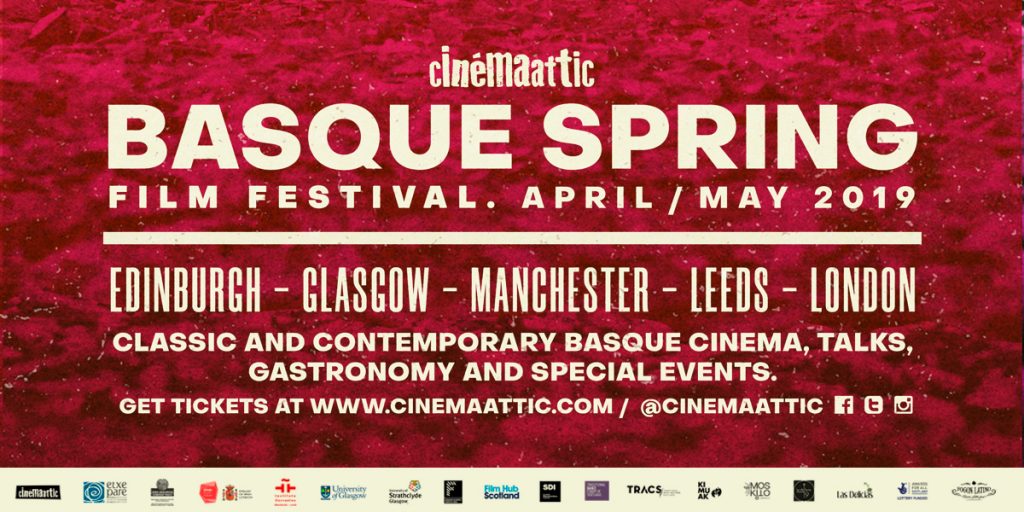A documentary-like portrait of Basque village culture and politics. Monument and centrepiece of the history of Basque Cinema. The childhood, love adventures, and ordinary life of Tasio, a coal maker in rural Navarre. While others emigrate to the city, he prefers to stay in the mountains where he feels free…Tasio shows the isolation and beauty of the landscape with the people who know how to make use of it, to draw a portrait of a fiercely independent free man. One of the foremost themes is the protagonist’s powerful bond with nature, but the film also highlights his honesty and rebellion against authority. It is often considered the magnum opus of Basque cinema portraying the countryside.
In TASIO, three giants of Spanish cinema came together for the first time, director Montxo Armendariz (Obaba, Secrets of the Heart), hugely influential producer Elias Querejeta (Cria Cuervos, The Spirit of the Beehive, El desencanto) and Almodovar’s Cinematographer Jose Luis Alcaine (Women on the Verge of a Breakdown, Volver, The Skin I Live In)
a documentary-like story set … Basque, the life of Tasio (Patxi Bisquert), a man who works in the coal industry, is traced from his childhood to his adulthood. As Tasio grows up the issues of exploitation of the workers and the repression by the Spanish Civil Guard, and questions relating to the priesthood are brought forward. Both his home and family life as a husband and father, as well as his relationships to those around him, give a sympathetic and clear picture of Basque village culture.
Tasio lives happily in a small town in Navarra located in the Urbasa mountain ranges, where he makes his living as a coal miner. He then meets Paulina, with whom he marries and eventually has a daughter. As carbon does not suffice to maintain a family, Tasio begins poaching. The rhythms of this peasant village, mired in poverty and settled into the beauty of the surrounding hills and forests, are ageless.
The director has skillfully intertwined the rhythms of local life with the rhythms of nature, and has counterbalanced the gentleness of family warmth with the harshness of life, the isolation and beauty of the landscape with the people who know how to make use of it, to draw a portrait of a fiercely independent free man.
”Tasio is a production of Elias Querejeta, who has produced many of the films of Spain’s premier film maker, Carlos Saura. The cinematographer, whose beautiful shots of the surrounding forest and portraits of the townsfolk help to build an essential atmosphere.
One of the foremost themes is the protagonist’s powerful bond with nature, but the film also highlights his independence, honesty and rebellion against authority. It is often considered the magnum opus of Basque cinema portraying the countryside.”
https://www.nytimes.com/1987/03/27/movies/film-tasio-a-look-at-village-life-in-spain-s-basque-county.html
 This event is part of Basque Spring, a film season organised by Cinemaattic that will bring to the UK classic and contemporary films from Basque Country from April 25th to May 23rd, and includes special screenings, talks and gastronomic events. The retrospective is supported by Etxepare Basque Institute and is part of the #ScotlandGoesBasque programme. More information via: at www.cinemaattic.com
This event is part of Basque Spring, a film season organised by Cinemaattic that will bring to the UK classic and contemporary films from Basque Country from April 25th to May 23rd, and includes special screenings, talks and gastronomic events. The retrospective is supported by Etxepare Basque Institute and is part of the #ScotlandGoesBasque programme. More information via: at www.cinemaattic.com

